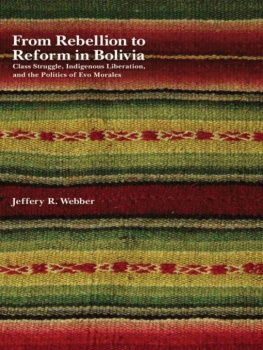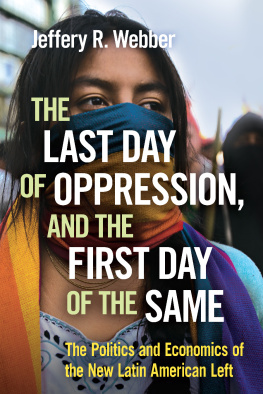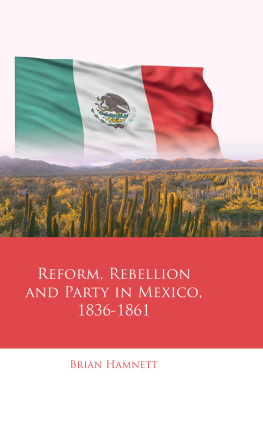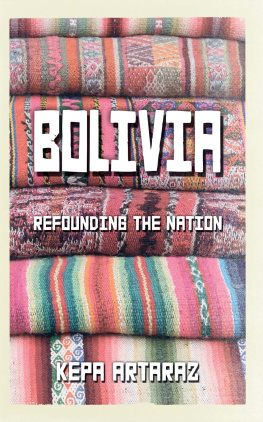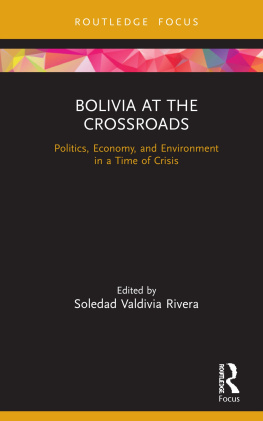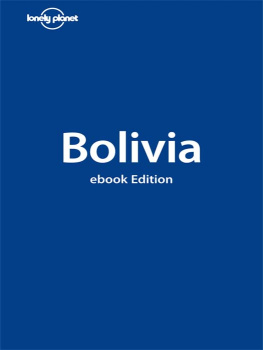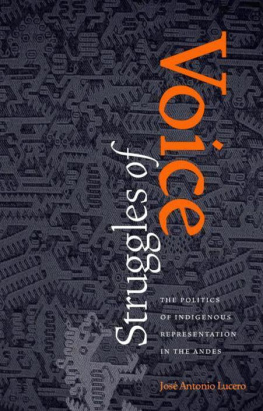Praise for From Rebellion to Reform in Bolivia
Jeffery Webber has become one of the shrewdest chroniclers of political developments in Latin America. In this exciting new book, Webber looks at the history of the political movements in Bolivia over the last decade, and in particular the MAS movement of President Evo Morales. As the left attempts to find escape routes from neoliberalism, there is a need for sober assessments of what is being accomplished. This book does just that for Bolivia, and makes an outstanding contribution to our understanding of the new Andean left.
Gregory Albo, coauthor with Sam Gindin and Leo Panitch ofIn and
Out of Crisis: The Global Financial Meltdown and Left Alternatives
From Rebellion to Reform in Bolivia offers a critical examination of complex political processes in Bolivia since 2000 and challenges existing views of Evo Moraless government. The analysis is characterized by exceptional rigor and clarity. Amidst widespread romanticism and ideological confusion, this book is a welcomed expression of sincere and realistic critique from the leftan excellent example of constructive solidarity with anti-imperialist, socialist, and indigenous liberationist struggles. Webber offers a comprehensive, nuanced, and provocative account of the economic agenda, political reforms, foreign policy, intellectual currents, and social movement activity under the Morales administration. It is a valuable book for those who want to understand the contradictions within the Left tide in Latin America.
Jasmin Hristov, author ofBlood and Capital:
The Paramilitarization of Colombia
From Rebellion to Reform in Bolivia provides a welcome addition to recent literature on Bolivia. Rather than simply celebrate the rise of Bolivias first indigenous president, Webber observes that while Morales and the MAS have made strides toward advancing indigenous rights, they have done little to challenge the nature of capitalist relations. His argument that Morales has reconstituted rather than replaced neoliberalism will remind readers of the importance of class analysis in any project that aims to bring about fundamental change.
Benjamin Kohl, coauthor with Linda Farthing of
Impasse in Bolivia: Neoliberal Hegemony and Popular Resistance
For Tieneke
Acknowledgments
The research for this book was made possible through the financial support of the International Development Research Centre (IDRC) and a Sir Val Duncan Travel Award from the Munk Centre for International Studies at the University of Toronto. All translation was done by the author. Sections of Chapters One, Two, and Three are drawn from my three-part article Rebellion to Reform in Bolivia, which appeared in Historical Materialism, vol. 16, nos. 2, 3, and 4, 2008. Chapter Four draws on sections of my article, Dynamite in the Mines and Bloody Urban Clashes: Indigenous Ascendant Populism and the Limits of Reform in Bolivias Movement Towards Socialism, in Socialist Studies/tudes Socialistes , vol. 4, no. 1, 2008.
This book is partially the product of fieldwork conducted in Bolivia between January and September 2005 and May and June 2006. More than eighty formal interviews were conducted with leading indigenous activists, social movement leaders, trade unionists, and individuals who later became prominent officials in the Movimiento al Socialismo (Movement Toward Socialism, MAS) government. I am indebted to each of them for having shared with me their hopes, aspirations, and analyses of the conjuncture in Bolivia.
Thanks to Forrest Hylton and Luis A. Gmez for assistance with initial contacts in Bolivia and for discussing with me many of the central themes taken up in this book, to David Camfield for commentary on my dispatches from Bolivia, to Todd Gordon for repeated conversations on the Latin American scene and an ongoing writing partnership, and to Susan Spronk for insightful comments on early drafts. Sinclair Thomson provided feedback and encouragement on early versions of parts of this manuscript. David McNally has gone out of his way on several occasions to support the research that went into this book.
Silvia Escbar de Pabn, an economist at the vitally important Centro de Estudios para el Desarrollo Laboral y Agrario (Center for Labor and Agrarian Development Studies, CEDLA) in La Paz, deserves special thanks for having shared with me her latest research on the labor market in Bolivia. Thanks to Sebastian Budgen, who encouraged me to pursue Haymarket Books as a publisher for this manuscript. At Haymarket, Anthony Arnove and Julie Fain were enthusiastic from the outset, and showed a great deal of patience as several deadlines passed. Tom Lewis read the manuscript carefully and provided crucial insights.
My family has seen me through the years involved in research and writing for this project.
Introduction
Evo Morales, of the Movimiento al Socialismo (Movement Toward Socialism, MAS), was elected president of Bolivia on December 18, 2005, with an historic 54 percent of the popular vote, and was reelected in December 2009 with 64 percent. The MAS is often associated, in popular and academic media alike, with the harder left current (Venezuela and Cuba) of a more general pink tide sweeping Latin America through the ballot box. How should we interpret the electoral victory of the MAS, and what is its significance for revolutionary or reformist social change in the poorest country in South America, where even official figures suggest 67 percent of the population currently lives in poverty?
Part I of this book grapples with these questions through its evaluation of the first year (January 2006 to January 2007) of the MAS government. It does so by shedding some light on the following topics: the character of the elections that brought the MAS to office; the historical trajectory of the party; the political economy of Bolivia under the first year of the administration; crucial developments in the Constituent Assembly process; the slow rearticulation of the racist autonomist right and its class and geographical bases in the eastern part of the country; and the dynamics of imperialism at the international scale and weight of changes in the regional politics of Latin America in terms of how they influence the domestic balance of social forces in Bolivia. Such a wide scope has its strengths and weaknesses. It obviously sacrifices some depth for breadth. Yet, at the same time, it has the virtue of sketching broad overarching trends of a political process that has captured the imagination of the international left in the current period in a manner unparalleled except perhaps by Venezuela under Hugo Chvez. The aim is to offer an overall portrait of some of the key dynamics of the Bolivian process, something that has not yet been accomplished sufficiently in English. Such a perspective, I argue, calls into question many of the assumptions and conclusions of the existing analyses of contemporary Bolivia, whether from the right or left. Undoubtedly, some uncritical supporters of the Morales government will see the analysis offered here as little more than unctuous sectarianism. Be that as it may, it is necessary to rupture the debilitating torpor that has descended on the bulk of the lefts discussions of the Bolivian process. Many analysts have heedlessly replaced careful examination of empirical reality with casual celebration of press releases issued from the presidential palace of Evo Morales. A responsible perspective, authentically in solidarity with the popular struggles for socialism and indigenous liberation in Bolivia, can ill afford such tact. That said, I offer sixteen theses in an attempt to push the debate forward.


